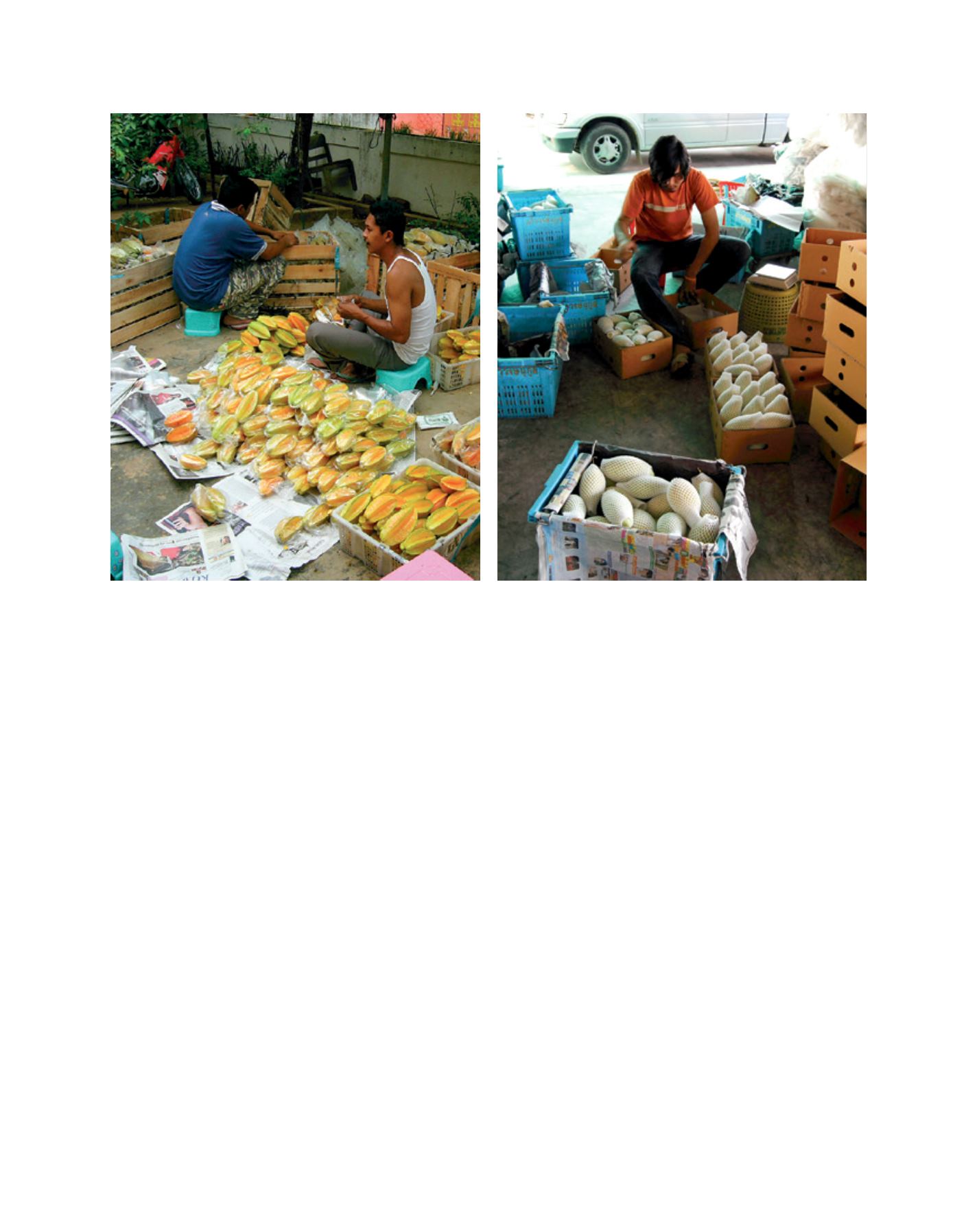

[
] 164
to adjust their production techniques and operations to
comply and be more aggressive in the competitive market.
One aspect of safety is the minimum residual level, which
sets the levels for chemical use.
Products destined to the export market are subject to
compliance to the sanitary and phytosanitary requirements
of the importing countries. In this regard, the farmers have
to be informed and trained on the importance of such regula-
tions to ensure that the fruits are acceptable, not only for the
export but also for the domestic market.
The increase in prices of farm inputs is another major issue
which can affect sustainable production. Organizing farm
families into groups or cooperatives is one way to reduce cost
through the bulk purchase of inputs, besides utilizing means
to increase production such as better-yielding cultivars and
improved production technologies.
The ever-growing demand for tropical fruits in the domestic
market as well as from consuming countries such as the USA,
EU and Japan, promises an optimistic future for the tropical
fruit industry, not only for multinationals but also for farm
families. Appropriate policies need to be formulated and
implemented to provide support for farmers to produce more
efficiently. Research and development on improving quality
and production, such as the introduction of better cultivars
and improved modern production technologies, need to be
better focused on marketable fruits. Extension systems need
to be reviewed for their effectiveness in the transfer of tech-
nology besides other knowledge such as market demands and
the importance of food safety. To sustain production, fruit
farmers must also have access to credit facilities, which are
needed to expand production.
It would be an advantage for farm families to be institu-
tionalized into farmers’ groups or cooperatives to improve
collective capabilities. With the development of collection
and processing centres for fruits, there will be more job
opportunities available in the rural areas. However, infra-
structures such as roads are necessary to reduces losses and
improve accessibility to markets.
For the past few decades, extension has been focused on
methods to improve fruit quality and food safety in tropical
fruit producing countries, sometimes with the assistance of
non-governmental organizations. Farmers now have a better
understanding of the type of produce desired by consumers.
The trend is now shifting for fruit farmers to go into mono-
cropping, or growing more of the most profitable fruit type.
While this may be preferred to increasing income for better
profit and for boosting the local economy, fruit farmers also
need to have a few other fruit types on their land to provide
nutrition for a balanced diet.
Besides being labelled as exotic, tropical fruit has been
promoted as healthy and nutritious in containing miner-
als, vitamins, antioxidants and fibre. This makes it a good
alternative or complement to other temperate fruits. With
the expected increase in domestic and global demand, farm
families growing these fruits should be given the opportu-
nity to integrate into the value chains and have access to
the markets, so that production can be sustained and their
livelihoods will be improved.
In most tropical fruit producing countries, farmers are growing more marketable fruit types to increase family income
Image: International Tropical Fruits Network
D
eep
R
oots
















